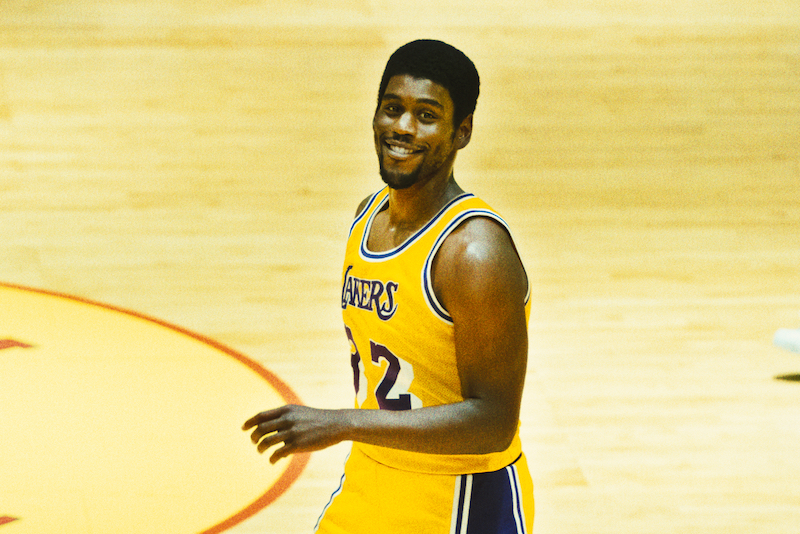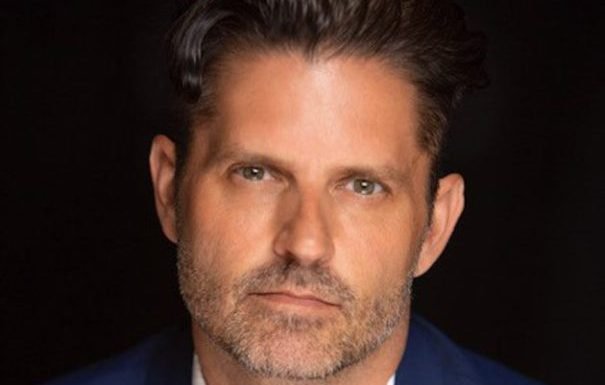The Los Angeles Lakers are arguably one of the most recognizable basketball teams on the planet – especially if you’re from Los Angeles. Based on a book by Jeff Pearlman Showtime: Magic, Kareem, Riley, and the Los Angeles Lakers Dynasty of the 1980s, Rodney Barnes and Jim Hecht created a television series called Winning Time chronicling the rise of Earvin “Magic” Johnson (Quincy Isiah), his team, and the colourful characters that surrounded him.
“The eighties was a period when I fell in love with the professional aspects of basketball,” reminisced Barnes. “When it came to the cultural aspect of the show, I wanted to ensure that the specificity and nuance of what America was from a both a sociological and basketball viewpoint.” The ABA (American Basketball Association) merged with the NBA (National Basketball Association) and perpetuated more athleticism and showmanship in the game.
The ABA was less popular and more independent than the NBA at the time. “It was like alternative music with a smaller core following. It was more exciting and had a uniqueness to it. The most exciting sport was fast becoming basketball,” added Hecht.
Basketball: More A Culture Than A Sport
Basketball prior to the 80s was generally played on a playground according to Barnes. “It repelled a lot of America at the time who felt the league was either too bland or too ‘street.’ When hip-hop become the music of America, there was a fusion between the two. The newly-formed NBA invited a new audience to the sport.” This was a gradual process that began in the 80s through the 90s and beyond.

Earvin “Magic” Johnson (Quincy Isaiah). Photo by Warrick Page/HBO
The NFA caused a cultural shift in how hip-hop musicians and basketballs were perceived. They were no longer considered shady or low-level criminals, but rather, as iconic heroes. “The flair that Michael Jordan played with was similar to that of Doctor J. and Magic Johnson. At one point, that was frowned upon and now it’s embraced.” This was tied to the evolution of American society and pop culture.
“Basketball become the rock and roll of the day, capturing that rebellious spirit and flying in the face of the establishment,” continued Hecht. “This is ours.”
The sport also became a cultural melting pot, where black and white players would play together on the court. The audience followed as cultural norms were transformed from segregation to a show transgressing race. “It’s identity shaping. How does the sport shape who I am as an individual and the way I look at the world?” postured Hecht.
Sports movies, especially biopics, have many examples that came before Winning Time. Sadly, many of them were bad according to Barnes. The spectacle that came with them both on and off the court was often the subject of these films rather than celebrating basketball. “The way these films were presented had a lot to do with how black men were presented. That always bothered me,” said Barnes who is black and also used to play the game. “There was this pathological idea that all black men participated in partying, drinking, and taking drugs was the sum total of who these men were.” Wider society neglected to observe the living, breathing human beings beneath these actions.

Rodney Barnes (Photo by Ralf Strathmann)
These issues were amplified when these newly-minted professional basketballers were thrust in the spotlight without adequate emotional and psychological preparation. This exacerbated their underlying anxiety, trauma, and social dislocation. “You get an opportunity to add a new dimension to the idea of what it means to be a professional athlete, and in some cases, what it means to be an African-American man on the biggest stage in the world,” mused Barnes.
Sport is the ultimate team builder. “You never see a human being in a team. You only see the team as a whole. Now, you see how an individual like Magic Johnson affects your team,” Barnes expanded. Winning Time also explores work life balance and longevity. The average lifespan of a professional basketballer is three or four years. What do they do after they retire after dedicating so much of their lives to getting to that level? “The most important thing for me was they were portrayed as human beings who happened to play a game,” concluded Barnes.
Jim Hecht added that many sports movies explore hero worship. “Many portray the players as all good or all bad,” he said. “The cast in Winning Time are complicated, nuanced people, not heroes and villains. They are individuals with their own drives, each reacting to the stress and pressures of the game.” It’s a microcosm of people responding to heightened situations they aren’t accustomed to.
Writing them as people first and basketballers second, the audience will hopefully understand the choices the players make without necessarily endorsing them.
Winning Time
Jim Hecht initially read Jeff Pearlman’s novel “as a fan not as a project.” The events leapt off the page and compelled him to create the television series. The book had its limitations with regard to how much it could cover. “Making a TV show gave each episode a time limit. This was a drama not a documentary. We didn’t want to create a Wikipedia page of The Lakers,” he said. They wanted a sports drama with a splash of comedy.
Hecht and Barnes’ research was extensive. “We read and saw everything about The Lakers during that time.” Rodney Barnes took a deeper approach by mining the humanity and emotions behind the research in order to dramatize Winning Time. There was some poetic license granted for clarity and continuity, but the entire series is essentially factual. It’s not a revisionist take on The Lakers. “It wasn’t just about the flat idea of the facts. We built a bridge to capture the essence of those two worlds,” said Barnes.
An example of this is the complex relationship between Jesse Buss (Sally Field) and her son Dr. Jerry (John C. Reilly) who owns the team. Jerry is often portrayed as the reckless, hedonistic, and financially risky owner of the team. “Adding his mother to the story, alters the dimension and scope of Jerry’s character from a one-note owner,” declared Barnes.
The characters weren’t the only elevated aspects of Winning Time. Dr. Buss had a very clear vision of what he wanted The Lakers to be. The basketball was already there, so the Lakers girls, over the top half-time shows and other flamboyant additions, merely elevated his vision. The Lakers didn’t become a showtime extravaganza overnight. The players didn’t start out travelling first class, dining at the best restaurants, or staying at the best hotels. “The travelling circus was a byproduct of how these people changed over the years as they became ultra-celebrities,” continued Hecht. The went from a garage band to rockstars. “This has consequences and not all of it good.”

Jim Hecht
Winning Time explores the dichotomous nature of winning as well as losing. The wins are euphoric and lucrative. However, those moments are short-lived and addictive. Ideally, winning might be be cause for gratiutide, reflection, personal growth and exploration, but instead it became the impetus to chase the next high. Winning was their drug of choice – the thing that made them feel fine all the time; no struggle, no depression, no anxiety. It became all about winning than playing the game.
Losing is the counter point. “Some players come from a place where they were looking to win thinking it will fill a void in their lives. If they lose, it validates their internal pain and struggle,” explained Barnes.
Winning Time was co-created with Max Borenstein (Godzilla). “He [Max] would work for hours picking at the smallest detail,” recalled Hecht. “Max has an intense Socratic process which forces you to ask why something happens.” He would keep pushing with endurance and tenacity for the deepest meaning of every scene.
Hecht and Barnes would also push each other in the writers’ room. Arguments would often result. “Instinctually when the answer comes, the argument ends,” said Barnes. “The goal is to reach the answer. It’s not personal between us. It’s about the story.”
Rodney Barnes began his writing career writing sitcoms (My Wife and Kids, Everybody Hates Chris) and later moved into writing for animation and drama. “I bring these elements to my writing… the human experience from all dimensions and all entry points. I’m not just one thing. Each writing job wasn’t so much about becoming a better writer, but refining my voice.”
Jim Hecht is most known for his work on the Ice Age movies. “I stopped trying to write the show I thought others wanted to see and wrote the show I wanted to watch myself.” Even writing for a mammoth and a sloth in Ice Age requires dramatization. “Getting into the room with Max Borenstein and Rodney Barnes was a trial by fire. I cannot be more thankful for what I learned during that experience. Collaboration forces you to take your ego out of the equation and focus on the idea.”
[More: Rodney Barnes & Jim Hecht Talk “Winning Time: The Rise Of The Lakers Dynasty”]
